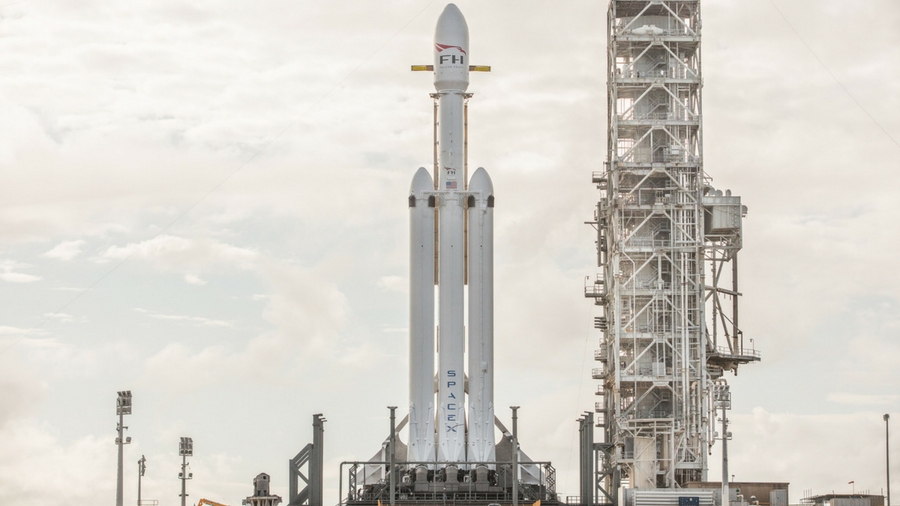SpaceX test fires Falcon Heavy, paving way to send a Tesla Roadster into Mars orbit
And not just any Tesla Roadster

Image credit: SpaceX
SpaceX's Falcon Heavy rocket uses power that hasn't been seen since the ambitious early days of space exploration in the 1960s and '70s, and today viewers around Cape Canaveral's historic LC-39A launch site got to see it in action during a static test fire.
All of Falcon Heavy's 27 Merlin engines blasted almost simultaneously for around 12 seconds for the test, creating an awe-inspiring show for onlookers. It's the first time that SpaceX has tested anything with this sort of power.
Observers on the ground noted plumes of smoke filled the Florida launch pad on Wednesday, and SpaceX shortly after posted a video of the static fire on Twitter. The post gleefully noted Falcon Heavy is "one step closer to first test flight!"
First static fire test of Falcon Heavy complete—one step closer to first test flight! pic.twitter.com/EZF4JOT8e4January 24, 2018
SpaceX will now review the data to determine whether it needs to hold another test before the official Falcon Heavy launch.
If the company decides an additional test isn't needed, the actual launch of the Falcon Heavy will take place sometime in the next two weeks, when the rocket will ship a payload of Elon Musk's personal midnight cherry Tesla Roadster.
It may not even be that long: Musk also tweeted today that "hold-down firing this morning was good" and it's "[l]aunching in a week or so."
Falcon Heavy hold-down firing this morning was good. Generated quite a thunderhead of steam. Launching in a week or so. pic.twitter.com/npaqatbNirJanuary 24, 2018
Delays beset the static fire test, so we'll stay cautiously optimistic about the launch timeline.
Get daily insight, inspiration and deals in your inbox
Sign up for breaking news, reviews, opinion, top tech deals, and more.
Eventually, and pending a successful launch, Musk's Tesla Roadster will reach Mars' orbit, where Musk says it will "be in deep space for a billion years or so if it doesn't blow up on ascent," playing David Bowie's Space Oddity as it goes. Privately funded space travel is nothing if not flashy.
For more in-depth information about SpaceX's mission to Mars, be sure to check out our ongoing Falcon Heavy coverage.
Michelle Fitzsimmons contributed to this article